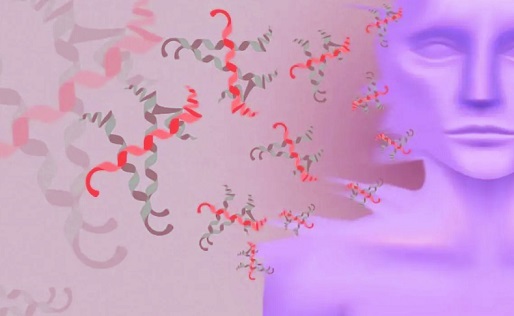Ohio State University’s Study Uncovers Proteomic Clues Behind Organ Failure in COVID-19 Cases
Nikhil Prasad Fact checked by:Thailand Medical News Team Apr 03, 2025 3 weeks, 1 day, 8 hours, 1 minute ago
Medical News: A new study by researchers at The Ohio State University has uncovered powerful insights into why some patients with COVID-19 develop severe organ failure and die while others survive. By studying the blood of critically ill patients, scientists have discovered that specific changes in plasma proteins - tiny molecules that perform crucial functions in the body - can reveal how badly a patient’s organs are functioning and even predict how their condition will change over time.
 Ohio State University’s Study Uncovers Proteomic Clues Behind Organ Failure in COVID-19 Cases
Ohio State University’s Study Uncovers Proteomic Clues Behind Organ Failure in COVID-19 Cases
The research team was made up of scientists from the Department of Internal Medicine (Division of Pulmonary, Critical Care, and Sleep Medicine), the Dorothy M. Davis Heart and Lung Research Institute, the Department of Biomedical Informatics, and the Center for RNA Biology, all affiliated with The Ohio State University College of Medicine in Columbus, Ohio.
The team conducted an in-depth analysis of 32 patients with severe COVID-19 who were suffering from Acute Respiratory Distress Syndrome (ARDS), a dangerous condition that causes fluid buildup in the lungs and leads to low oxygen levels in the body. All the patients were admitted to intensive care and were unvaccinated at the time of the study. Blood samples were taken on the first and seventh days of ICU admission to track changes over time.
Proteins That Tell a Story About Organ Failure
Using an advanced testing method known as the SomaScan platform, researchers measured the abundance of more than 7,000 proteins in the blood samples. They then compared these measurements to the patients’ SOFA scores - a clinical tool used to assess organ function across the body.
At day one, they found 184 proteins that had significantly different levels depending on how sick the patients were. The worse the organ failure, the higher the levels of specific inflammatory and immune-related proteins. For example, proteins like ephrin ligands (EFNA1, EFNA2, EFNA5), trefoil factor 3 (TFF3), and fatty acid-binding proteins (FABP3 and FABP4) increased in patients with more severe organ dysfunction.
By day seven, 46 proteins were found to be significantly tied to the SOFA scores, including immune and cell signaling molecules such as interleukin 1 receptor antagonist (IL1RN), MYC-associated zinc finger protein (MAZ), and several protocadherins, which are involved in cellular adhesion and communication.
Tracking the Dynamic Battle Between Damage and Repair
The study covered in this
Medical News report also revealed that the way protein levels changed over time could mirror whether a patient was improving or deteriorating. Specifically, researchers found 40 proteins whose changes between day 1 and day 7 were linked to changes in SOFA scores.
For example, increasing levels of ferritin light chain (a marker of inflammation), insulin-like growth factor binding protein 2 (IGFBP2), and ephrin A1 were associated with worsening orga
n failure. Meanwhile, higher levels of heat shock proteins and epidermal growth factor - proteins involved in cell repair - were tied to recovery and improved SOFA scores.
Pathway analysis using bioinformatics tools revealed that ongoing inflammation, particularly through acute phase response and ephrin signaling, was a key driver of worsening organ function. Conversely, signals tied to wound healing and lipid metabolism, including pulmonary fibrosis and cholesterol-related pathways, were associated with recovery.
Why These Findings Matter
These plasma protein patterns could be the key to unlocking personalized treatments for patients with severe COVID-19 and other causes of ARDS. By identifying early molecular signs of either worsening or improving disease, doctors may one day be able to intervene more effectively, selecting treatments based on each patient’s unique protein profile.
The ephrin signaling pathway, in particular, was strongly associated with disease severity across multiple time points and analyses, indicating it might play a pivotal role in how the body responds to SARS-CoV-2 infection. Previous studies have linked ephrin proteins to immune cell movement and lung tissue injury, making them promising targets for future therapies.
Conclusions
This detailed study suggests that the blood of patients with COVID-19 ARDS holds a treasure trove of clues about the progression of organ failure. The ability to track these changes in real time could help physicians anticipate clinical deterioration or improvement, enabling more precise interventions. Key findings include the identification of over 180 proteins linked to organ dysfunction on day one of ICU admission and 40 proteins that dynamically shifted with disease progression. The interplay between persistent inflammation and impaired healing processes appears central to the worsening of ARDS, with the ephrin signaling pathway standing out as a potential biomarker and therapeutic target. This research opens the door to future efforts in tailoring treatment approaches to each patient’s molecular profile.
The study findings were published in the peer reviewed journal: Physiological Reports.
https://physoc.onlinelibrary.wiley.com/doi/10.14814/phy2.70300
For the latest COVID-19 News, keep on logging to Thailand
Medical News.
Read Also:
https://www.thailandmedical.news/news/viral-sepsis-challenges-and-new-insights
https://www.thailandmedical.news/news/breaking-covid-19-news-case-study-shows-that-even-asymptomatic-sars-cov-2-infections-can-lead-to-spontaneous-bowel-perforations
https://www.thailandmedical.news/news/latest-international-study-finds-that-sars-cov-2-virus-inhibits-mitochondrial-gene-transcription,-increasing-risk-of-organ-failure-and-death
https://www.thailandmedical.news/articles/hospital-news
https://www.thailandmedical.news/pages/thailand_doctors_listings
